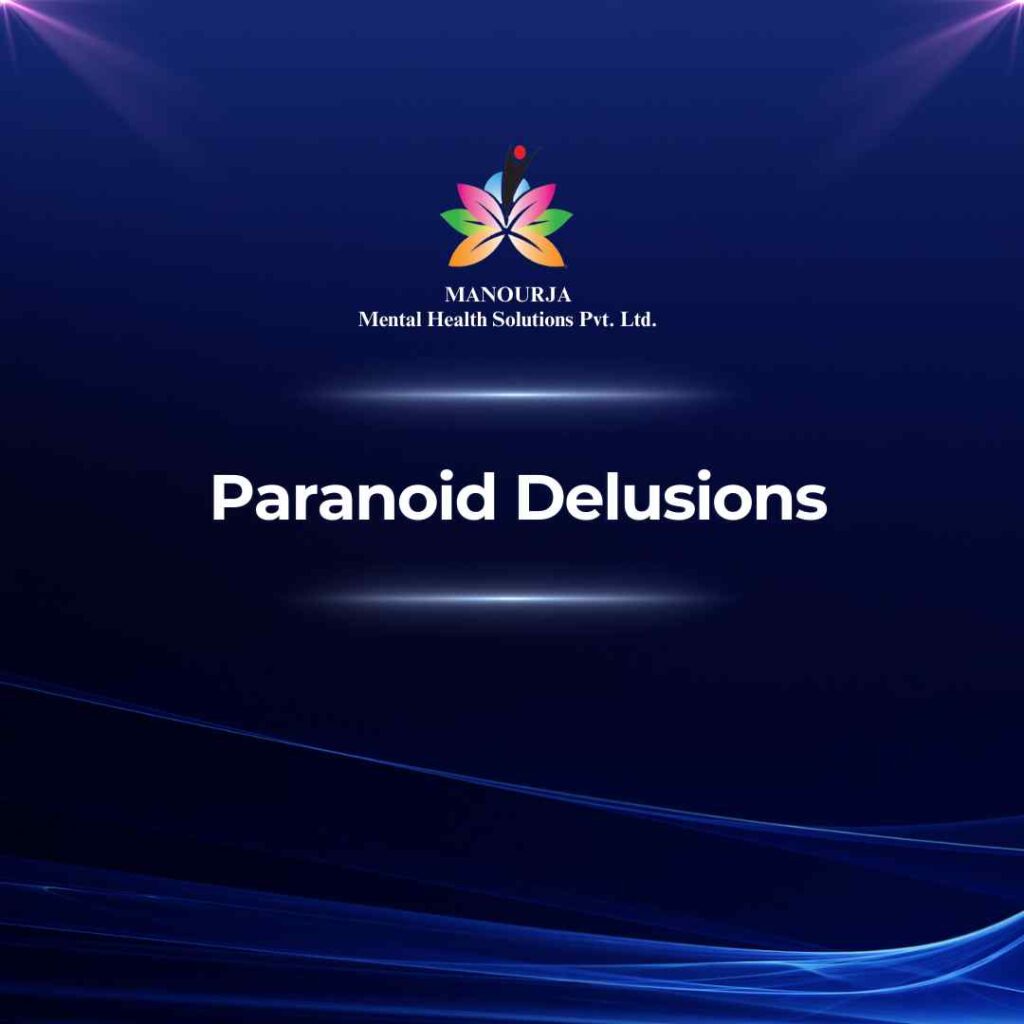Paranoid Delusions

“Paranoid delusions” refer to false beliefs or suspicions that others are intending harm, conspiring against, or plotting to harm oneself. These beliefs are firmly held despite lack of evidence or logical reasoning. Paranoid delusions can significantly impact a person’s thoughts, emotions, behaviors, and relationships, leading to distress and impaired functioning.
Paranoid Delusions as a Sign and Symptom of Mental Illness
Paranoid delusions are a hallmark symptom of several psychiatric disorders, particularly psychotic disorders. They involve a distortion of reality where individuals interpret neutral or benign situations as threatening or dangerous.
Mental Illnesses with Paranoid Delusions as Symptoms
Paranoid delusions can occur in the following mental health disorders:
- Schizophrenia: Paranoid delusions are common in schizophrenia, where individuals may believe that they are being persecuted, spied on, or conspired against by others. These delusions can lead to withdrawal, suspicion, and defensive behaviors.
- Delusional Disorder: This disorder is characterized by persistent delusions that are not accompanied by other symptoms of schizophrenia. Individuals with delusional disorder may have paranoid delusions related to themes of persecution, jealousy, or grandiosity.
- Brief Psychotic Disorder: During brief psychotic episodes, individuals may experience paranoid delusions along with other psychotic symptoms such as hallucinations and disorganized thinking. These episodes typically resolve within a month.
- Paranoid Personality Disorder: Although distinct from psychotic disorders, individuals with paranoid personality disorder may have longstanding and pervasive mistrust and suspicion of others, which can resemble paranoid delusions but are more stable over time.
- Bipolar Disorder: During manic or mixed episodes of bipolar disorder, individuals may experience paranoid thoughts or delusions, often related to heightened arousal and agitation.
- Substance-Induced Psychotic Disorder: Intoxication with certain substances, such as hallucinogens or stimulants, can induce paranoid delusions as a temporary symptom.
Managing and Treating Paranoid Delusions
Treatment for paranoid delusions focuses on reducing symptoms, improving insight, and enhancing quality of life:
- Antipsychotic Medications: Medications such as antipsychotics are often prescribed to reduce the intensity of delusions and other psychotic symptoms.
- Psychosocial Interventions: Cognitive-behavioral therapy (CBT) and supportive therapy can help individuals challenge irrational beliefs, improve coping skills, and manage distress associated with paranoid delusions.
- Family and Social Support: Involving family members and providing education about the nature of paranoid delusions can improve support networks and treatment adherence.
- Community Support: Support groups and community mental health services can provide additional resources and assistance for individuals coping with paranoid delusions.
Recognizing paranoid delusions as a symptom of an underlying mental health condition is crucial for accurate diagnosis and effective treatment planning. Addressing these delusions through comprehensive and individualized treatment approaches can help individuals manage symptoms, reduce distress, and improve overall well-being.
At MANOURJA, we believe in the transformative power of counseling. Our experienced therapists offer a safe and supportive space where you can explore your thoughts, emotions, and challenges. Through personalized counselling sessions, we’ll work together to develop coping strategies, build resilience, and achieve lasting positive change. Discover the path to a healthier, happier you with MANOURJA counselling services.
MANOURJA Rehabilitation Services
At MANOURJA, we’re dedicated to helping you in rebuild your life, after difficult times. Our rehabilitation services focus on understanding what you need to move forward, whether you’re recovering from addiction, trauma, or any psychological – social challenges. We create personalized plans, that are all about helping you, regain your strength and find hope again. With a caring team by your side, you’ll have the support to make real progress and take steps toward a brighter, healthier future.
